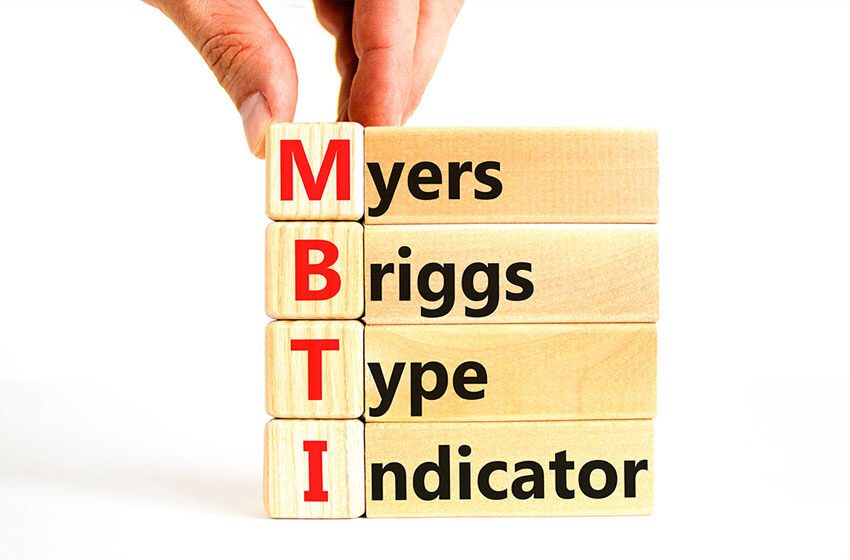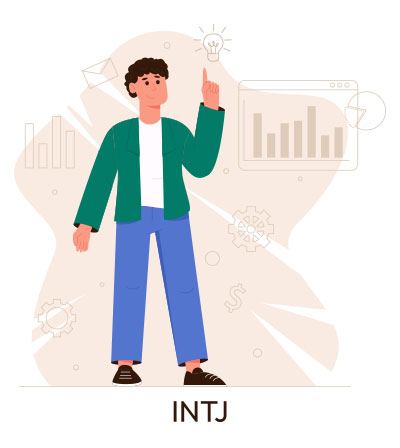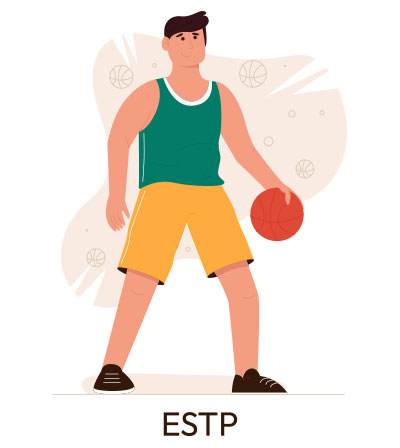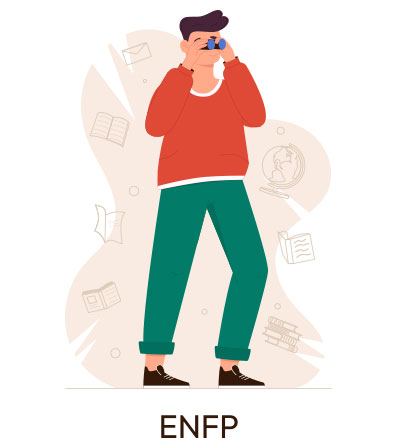Australia’s Migration Reset: Seven MEGA changes from July 2025
How many personality types are there? (Read to find out your own personality)

MBTI
How do you react when someone talks about you behind your back? If someone were to argue with you intentionally, would you indulge or avoid them? If most of your co-workers are judgemental towards someone, would you do the same? How you respond in a situation or demonstrate your natural instincts can reveal a lot about your personality.
Furthermore, our personalities can be divided into specific categories, helping to identify particular traits and personal issues. Consequently, that helps to understand why we sometimes feel the way we feel or say what we say. For instance, you might have heard people describing themselves as having an INTJP or ISTP personality type. So let’s find out what’s all that about.
Myers-Briggs 16 Personality Types

Isabel Briggs Myers and her mother, Katherine Briggs, developed a theory based on the work of Psychologist Carl Jung in the 1960s. Moreover, they explored Jung’s ideas to create a more comprehensive framework of personality types. Nonetheless, they highlighted four crucial dimensions under which people can be categorised, which are as follows:
- Introversion vs Extroversion
- Sensing vs Intuition
- Thinking vs Feeling
- Judging vs Perceiving
They described the four dimensions as a dichotomy, indicating that people can be one of two styles of being. Besides, Myers and Briggs pointed out the dimensions as preferences and suggested that people could identify either of the four types. Furthermore, the theory postulated that our preferences on each of the four dimensions would combine to create predictable patterns in thought and behaviour.
Hence, people with the same four preferences would share many commonalities in the way they approach their lives, hobbies, etc. Besides, each of the four letters in a personality type code stands for a preference in your thinking or behaviour.
ISTJ

ISTJ (introversion, Sensing, thinking, judgment) is a four-letter code representing one of the 16 personality types found on the Myers-Briggs Type Indicator (MBTI). People with an ISTJ personality type tend to be reserved, practical and quiet. They enjoy order and organisation in all areas of their lives, including home, work, family, and projects.
ISTJs value loyalty in themselves and others and emphasise traditions. While they have a reputation for being blunt, they are also known for being nice, loyal, and responsible. Also, it is not a rare personality type; on the contrary, it is one of the most common ones accounting for around 11 to 14 percent of the population. It is more common among men, with 14 to 19% of men having this type compared to seven to 10% of women.
Strengths and Weaknesses
● Calm
● Concerned with rules
● Decisive
● Honest
● Independent
● Insensitive
● Level-headed
● Stubborn
● Straight-forward
● Reserved
● Responsible
ISTP

ISTP (introverted, sensing, thinking, perceiving) personality type enjoys having time to think alone and is fiercely independent. ISTPs also love action, new experiences, hands-on activities, and the freedom to work independently.
They enjoy taking things apart just to see how they work. They are logical and rational but more interested in practical applications than abstract ideas. They love doing new things and can become bored with routines rather quickly.
Strengths and Weaknesses
- Logical
- Learns by experience
- Action-oriented
- Realistic and practical
- Enjoys new things
- Self-confident and easygoing
- Difficult to get to know
- Insensitive
- Grows bored easily
- Risk-taker
- Does not like commitment
ISFJ

ISFJ stands for introverted, sensing, feeling, judging; this personality type is named “The Protector” or “The Defender,” and for a good reason. People who have ISFJ personalities are known for being warm-hearted, responsible, and reserved. The ENTP personality type is the opposite.
Besides, it is a common personality type that accounts for 9 to 14 percent of the population. People with this personality type can succeed in independent and social situations. They are adaptable and can adapt and thrive in many settings.
Strengths and Weaknesses
- Caring
- Compassionate
- Dependable
- Industrious
- Kind-hearted
- Loyal
- Organised
- Practical
- Protective
- Sensitive
- Warm
- Dislikes abstract concepts
- Avoids confrontation
- Dislikes change
- Neglects own needs
ISFP

People with an ISFP personality – the Adventurers – have Introverted, Observant, Feeling, and Prospecting personality traits. They’re kind, friendly, and sensitive, with an easygoing attitude. They tend to accept other people as they are. Also, they don’t do well with abstract theories unless they see some practical application. But on the other hand, they excel at projects and learning situations involving hands-on activities.
People with ISFP personalities are very in tune with the world around them. They are very much attuned to sensory information and are keenly aware of even small changes in their immediate environment. Because of this, they often place a high emphasis on aesthetics and appreciate the fine arts.
Strengths and Weaknesses
- Very aware of their environment
- Practical
- Enjoys hands-on learning
- Loyal to values and beliefs
- Dislikes abstract, theoretical information
- Reserved and quiet
- Strong need for personal space
- Dislikes arguments and conflict
INFJ

People with this personality type are Introverted, Intuitive, Feeling, and Judging. Sometimes referred to as the “Advocate” or the “Idealist,” people with this personality type often feel misunderstood. Furthermore, they are the rarest personality types and are contradictory in nature.
In addition, they are easygoing perfectionists and are both logical and emotional, creative and analytical.
Strengths and Weaknesses
- Sensitive to the needs of others
- Reserved
- Highly creative and artistic
- Focused on the future
- Values close, deep relationships
- Enjoys thinking about the meaning of life
- Idealistic
- Can be overly sensitive
- Sometimes difficult to get to know
- Can have overly high expectations
- Stubborn
- Dislikes confrontation
INFP

INFP (introversion, intuition, feeling, perception) is an idealist or mediator personality type that tends to be introverted, idealistic, creative, and driven by high values. They want to make the world a better place and are interested in how they can best help others. They also strive to understand themselves better and how they fit into the world.
People with this personality type spend a lot of time exploring their purpose in life and thinking about how to use their skills and talents to best serve humanity. INFPs are known to be introverted, quiet, and reserved.
Being in social situations can drain their energy, and they prefer interacting with a select group of close friends. While they like to be alone, this should not necessarily be confused with shyness. Instead, it simply means that INFPs gain energy from spending time alone. On the other hand, they have to expend energy in social situations.
Strengths and Weaknesses
- Loyal and devoted
- Sensitive to feelings
- Caring and interested in others
- Works well alone
- Value close relationships
- Good at seeing “the big picture.”
- They can be overly idealistic
- They tend to take everything personally
- Difficult to get to know
- Sometimes loses sight of the little things
- Overlooks details
INTJ

INTJ means introverted, intuitive, thinking, and judging and refers to the “Architect” or the “Strategist,” people who are highly analytical, creative and logical. INTJs tend to be introverted and prefer to work alone. They’re self-confident and hard-working, which is a strength. However, it can also be a weakness as they may come across as insensitive or callous.
Furthermore, they emphasise logical and objective information rather than subjective emotions. And talking about emotions makes them uncomfortable.
Strengths and Weakness
- Enjoys theoretical and abstract concepts
- High expectations
- Good at listening
- Takes criticism well
- Self-confident and hard-working
- Can be overly analytical and judgmental
- Very perfectionistic
INTP

INTP means introverted, intuitive, thinking, and perceiving; people with this kind of personality have a rich inner world and would rather focus on their internal thoughts than the external world. They typically do not have a wide social circle, but they do tend to be close to a select group of people. There are two subtypes of INTPs: INTP-A and INTP-T.
- INTP-A: Known as the “Assertive Logician,” this subtype tends to be more comfortable with themselves and more confident than an INTP-T. They are also more satisfied with where they are in life.
- INTP-T: This subtype is referred to as the “Turbulent Logician” and, when compared to an INTP-A, feels less comfort both personally and in terms of their current life. They also tend to be slightly less confident.
Strengths and Weaknesses
- Logical and objective
- Abstract thinker
- Independent
- Loyal and affectionate with loved ones
- Difficult to get to know
- Can be insensitive
- Prone to self-doubt
- Struggles to follow rules
- Has trouble expressing feelings
ESTP

ESTP (Extraverted, Sensing, Thinking, Perceiving), also known as Entrepreneurs and Dynamos – are outgoing and enjoy spending time with a wide circle of friends and acquaintances. However, they are interested in the here and now and are more likely to focus on details than take a broader view.
When making decisions, they place a higher value on objectivity rather than personal feelings. ESTPs don’t like to be pinned down by excessive planning. Instead, they like to improvise and keep their options open.
Strengths and Weaknesses
- Gregarious, funny, and energetic
- Influential and persuasive
- Action-oriented
- Adaptable and resourceful
- Observant
- Impulsive
- Competitive
- Dramatic at times
- Easily bored
- Insensitive
ESTJ

ESTJ stands for Extraverted (likes to spend time with people), Sensing (pays attention to the five senses), Thinking (weighs principles and facts heavily), and Judging (prefers a more structured lifestyle).ESTJs are often described as logical, take-charge people and are assertive and concerned with ensuring things run smoothly and according to the rules.
ESTJs are also committed to traditions, standards, and laws. They have strong beliefs and possess sensible judgment – and they expect others to also uphold these same principles.
Strengths and Weaknesses
- Practical and realistic
- Dependable
- Self-confident
- Hard-working
- Traditional
- Strong leadership skills
- Insensitive
- Inflexible
- Not good at expressing feelings
- Argumentative
ESFP

ESFP (extraverted, Sensing, feeling, perceiving) are spontaneous, resourceful and outgoing, and they love to be the centre of attention. Furthermore, they prefer to learn through hands-on experience and tend to dislike book learning and theoretical discussions. Because of this, students with ESFP personality types sometimes struggle in traditional classroom settings.
Strengths and Weaknesses
- Optimistic and gregarious
- Enjoys people and socialising
- Focused on the present, spontaneous
- Practical
- Dislikes abstract theories
- Becomes bored easily
- Does not plan ahead
- Impulsive
ESFJ

ESFJ (Extroverted, Sensing, Feeling, Judging) personality type tends to be outgoing, loyal, organised, and tender-hearted. ESFJs gain energy from interacting with other people. They have a way of encouraging other people to be their best and often have a hard time believing anything bad about the people they are close to.
People of this personality type are raised with high values and standards and tend to grow up to be generous adults. Conversely, those raised in a less generous environment may not be as naturally in tune with giving to others and be more focused on themselves.
ESFJs also have a strong desire to exert control over their environment. As a result, they feel in control of the world around them by organising, planning, and scheduling.
ENFP

ENFP (Extraverted, Intuitive, Feeling and Perceiving) personality types are enthusiastic, charismatic, charming, energetic, and independent. Besides, they are creative individuals and tend to do their best in situations that allow them to innovate and create. Furthermore, there are two subtypes of ENFPs: ENFP-A and ENFP-T.
- ENFP-A: Someone who is an ENFP-A is also known as an “Assertive Campaigner.” This ENFP subtype tends to be more confident and has more emotional control in their relationships.
- ENFP-T: ENFP-Ts are known as “Turbulent Campaigners” and often have less confidence and less emotional control; also, they experience more anxiety when dealing with everyday stress.
ENFJ

(Extraverted, Intuitive, Feeling, Judging) personality types are warm, loyal, outgoing, sensitive and good at connecting and interacting with others. Because of their ability to sense what others feel and affect how people behave, they can influence and even manipulate others. However, their strong value system balances this and their desire to help others be their best.
Strengths and Weaknesses
- Outgoing and warm-hearted
- Empathetic
- Wide social circle
- Encouraging
- Organised
- Affectionate
- Persuasive
- Approval-seeking
- Overly sensitive
- Indecisive
- Self-sacrificing
- Rigid and uncompromising
ENTP

ENTP (Extroverted, Intuitive, Thinking, Perceiving) personality type people are innovative, clever, expressive and idea-oriented. However, ENTPs are less interested in the here-and-now details than they are in generating ideas and theories. Because of this, they sometimes come up with one idea after another without going forward with plans and actions to bring their creative notions to fruition.
Strengths and Weaknesses
- Innovative
- Creative
- Great conversationalist
- Enjoys debating
- Values knowledge
- Can be argumentative
- Dislikes routines and schedules
- Does not like to be controlled
ENTJ

ENTJ (Extraverted, Intuitive, Thinking, Judging) personality types are assertive, confident, and outspoken. They have strong verbal skills, and interacting with others helps them feel energised. Besides, they prefer to think about the future rather than focus on the here and now. They usually find abstract and theoretical information more interesting than concrete details.
Strengths and Weaknesses
- Strong leadership skills
- Self-assured
- Well-organised
- Good at making decisions
- Assertive and outspoken
- Strong communication skills
- Impatient
- Stubborn
- Insensitive
- Aggressive
- Intolerant






